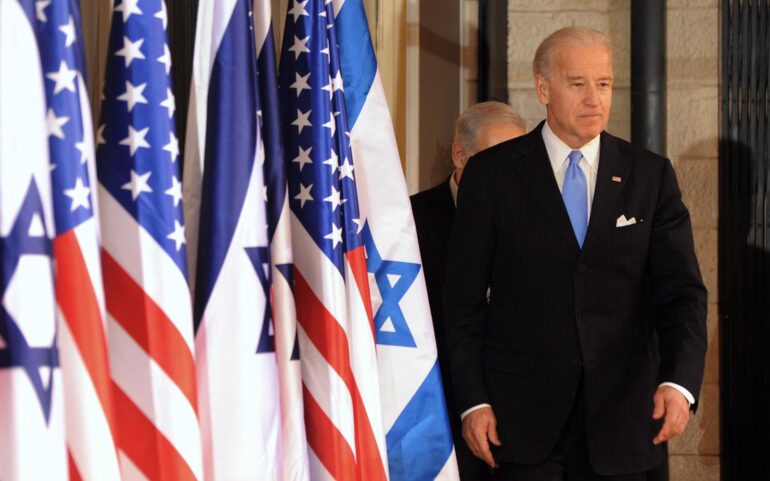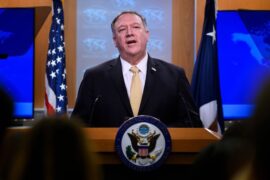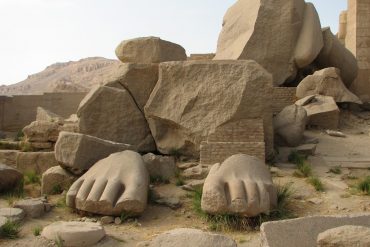There has been much speculation about what the incoming Biden administration will prioritize for foreign policy initiatives, and how it will use Washington’s power to push its agenda. While foreign policy is not typically a heavily emphasized feature of the US election cycle and presidential debates, we have various hints at the direction the new administration will take.
The Trump presidency will likely have a lasting legacy in regard to Israel, as few presidents have spent as much time as Trump did, pushing a specific agenda. Whether it be normalization between countries such as the United Arab Emirates, Bahrain, Sudan, and Morocco with Israel, US recognition of Israeli sovereignty in East Jerusalem and the Golan Heights, or a redefinition of the legality/illegality of Israel’s presence in the West Bank, Trump has left his imprint on the region for the foreseeable future.
An additional feature has been a public antagonism to the existing Palestinian leadership and institutions such as the United Nations Relief Works Agency (UNRWA). This has resulted in symbolic moves such as ending the Palestinian mission in Washington, but also measures such as divesting US money from UNRWA and from USAID initiatives in the West Bank and Gaza.
While many of us on the left see these things as formalizing the de facto, on a global level and even American level, they matter greatly.
So, what can we expect from a Biden administration?
Instead of watching a bunch of outdated videos of him or Kamala Harris speaking at AIPAC or other platforms, as many others do, it may be more instructive to view the situation from a different perspective.
Namely, I would argue there are two poles: “what will Biden undo” and “what will Biden promote.”
A lot of energy has been exerted by Liberal Zionists and their allies to perpetuate the belief that we will be “going back to normal,” which for them means endless “peace” talks, pushing for “two states,” and deepening Israeli and Palestinian dependency on the decaying US empire.
But what realistically is Biden going to undo? US recognition of Jerusalem as Israel’s capital? How would it benefit Biden or US interests to spend many millions on moving back an embassy? In the two-state narrative, Jerusalem will be a shared capital and American presidents and presidential candidates have stated they would recognize the city as Jerusalem’s capital anyways. Do we really think Biden cares so much about this particular issue or Palestinian issues in general?
Ok, what about the Golan? What is the benefit of undoing recognition of Israeli sovereignty? Don’t worry, I’ll wait. Normalization is done and what US politician is going to spend political capital forcing Arab sheikhs in the Gulf to undo recognition of Israel on the Syrian’s behalf? Seems absurd.
Could Biden decide to undo Trump’s redefinition of the legality or illegality of Israel’s civilian presence in the West Bank? It is more likely than the other topics I’ve mentioned above but even this seems to be a costly adventure that would garner Biden minimum political capital, and for a people he has shown antipathy for at best.
So then, what will Biden promote?
Maybe the better question is, what can Biden promote that will garner the least amount of pushback and the most amount of political capital?
The main issues I believe would be a restoration of funding to UNRWA and reinvestment into USAID initiatives in the West Bank and Gaza. We already see the latter with the recent passing of the Nita Lowey Middle East Partnership for Peace Act, which was quietly included in relief bills that went through Congress, and guarantees $250 million over the next five years to “expand peace and reconciliation programs in the region, as well as to support projects to bolster the Palestinian economy.”
This bill and variations of it have been pushed by peace industry organizations for most of the past 25 years.
I actually highly recommend everyone listens to the Executive Director of ALLMEP’s interview on the Americans for Peace Now podcast, talking about this bill. It illuminates how these organizations operate and perpetuate American interests in the region under the guise of kumbaya “coexistence” (thankfully most organizations have dropped this term and use the equally cringey and transparent term “shared society”) and peace projects.
One component oft neglected is the “support projects to bolster the Palestinian economy.” The reason is this money is traditionally used for two main purposes: infrastructure projects such as road building across the West Bank (which should be Israel’s responsibility) and promoting Palestinian businessmen in their endeavors with Israeli and Western businessmen. The idea is based on the Washington Consensus and traditional trickle-down economics, whereby giving money or preferential treatment to the rich will somehow magically benefit all or most individuals in a society.
This is a very traditional model of US economic imperialism that has been forced on scores of countries around the world, wrapped in neat packages like peace, development, etc.
Despite what groups like JStreet and others say, “going back to normal” with Biden, in Israel/Palestine, seems to rest on the perpetuation of American economic dominance and the propping up of coexistence groups to push a two-state agenda while lining their pockets in the process, while Palestinians are expected to be grateful that services like UNRWA are now able to feed poor refugees in Gaza and Lebanon.
This all seems wildly coincidental since after four years of open American antagonism, preceded by 25 years of Western pussyfooting and perpetuation of the two-state model, that Palestinians have responded by a stronger willingness to drop their support for a “two-state solution” to a historical low of 39-42% (depending on the framing of the question).
Will the West, led by the United States under incoming President Joe Biden, be able to bribe enough of Palestinian society with petty perks to raise these numbers?
Let’s hope not.





